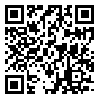Volume 10, Issue 2 (2025)
Manage Strat Health Syst 2025, 10(2): 159-171 |
Back to browse issues page
Research code: 18747
Ethics code: IR.SSU.REC.1403.092
Download citation:
BibTeX | RIS | EndNote | Medlars | ProCite | Reference Manager | RefWorks
Send citation to:



BibTeX | RIS | EndNote | Medlars | ProCite | Reference Manager | RefWorks
Send citation to:
mousavi S M, Karimi M, Ghomi F, Saffari M. Investigating the Maturity of Intellectual Capital within the Deputy of Management and Resources Development: A Cross-Sectional Study in Shahid Sadoughi University of Medical Science in Yazd. Manage Strat Health Syst 2025; 10 (2) :159-171
URL: http://mshsj.ssu.ac.ir/article-1-829-en.html
URL: http://mshsj.ssu.ac.ir/article-1-829-en.html
1- Assistant Professor, Health Management and Policy Research Center, Department of Management Sciences and Health Economics, School of Health, Shahid Sadougi University of Medical Sciences, Yazd, Iran
2- BSc in Health Services Management, Health Management and Policy Research Center, Department of Management Sciences and Health Economics, School of Health, Shahid Sadoughi University of Medical, Yazd, Iran ,karimi0987m@gmail.com
3- MSc in Biostatistics, Yazd Cardiovascular Research Center, Noncommunicable Diseases Research Institute, Shahid Sadoughi University of Medical Sciences, Yazd, Iran
2- BSc in Health Services Management, Health Management and Policy Research Center, Department of Management Sciences and Health Economics, School of Health, Shahid Sadoughi University of Medical, Yazd, Iran ,
3- MSc in Biostatistics, Yazd Cardiovascular Research Center, Noncommunicable Diseases Research Institute, Shahid Sadoughi University of Medical Sciences, Yazd, Iran
Abstract: (402 Views)
Background: The most fundamental characteristic of 21st-century intelligent organizations is their emphasis on knowledge and information. Intellectual capital, as a set of intangible assets, is considered a vital resource for organizational performance and the ability to innovate, create, and sustain competitive advantages. This study aimed to evaluate the maturity level of intellectual capital within the Deputy of Management Development and Resources at Shahid Sadoughi University of Medical Sciences, Yazd, in 2024.
Methods: This descriptive-analytical study was conducted in 2024. The statistical population consisted of senior, middle, and base-level managers, as well as employees of the Deputy, categorized by departments, including Human Resources Management, Physical Resources and Construction Projects, Financial and Accounting Resources, Support Services, Organizational Development and Administrative Transformation, Budget Planning and Performance Monitoring. The total population was 133 individuals. Data were collected using the Intellectual Capital Assessment Questionnaire and analyzed with Mann-Whitney, ANOVA, and Kruskal-Wallis tests via SPSS 26 software.
Results: Approximately 65% of the participants considered the status of intellectual capital at an average level. Additionally, the findings indicated a significant and direct relationship between marital status and intellectual capital as well as between management domain and the “managed level of intellectual capital maturity (p = 0.03).
Conclusion: Considering that the overall mean score of intellectual capital maturity was evaluated as average, further attention and awareness are required to enhance the maturity of intellectual capital to higher levels. Promoting a culture of learning and innovation within the organization can contribute to this enhancement. Additionally, continuous monitoring of intellectual capital through defining performance indicators and periodic reporting can facilitate better management and informed decision-making.
Methods: This descriptive-analytical study was conducted in 2024. The statistical population consisted of senior, middle, and base-level managers, as well as employees of the Deputy, categorized by departments, including Human Resources Management, Physical Resources and Construction Projects, Financial and Accounting Resources, Support Services, Organizational Development and Administrative Transformation, Budget Planning and Performance Monitoring. The total population was 133 individuals. Data were collected using the Intellectual Capital Assessment Questionnaire and analyzed with Mann-Whitney, ANOVA, and Kruskal-Wallis tests via SPSS 26 software.
Results: Approximately 65% of the participants considered the status of intellectual capital at an average level. Additionally, the findings indicated a significant and direct relationship between marital status and intellectual capital as well as between management domain and the “managed level of intellectual capital maturity (p = 0.03).
Conclusion: Considering that the overall mean score of intellectual capital maturity was evaluated as average, further attention and awareness are required to enhance the maturity of intellectual capital to higher levels. Promoting a culture of learning and innovation within the organization can contribute to this enhancement. Additionally, continuous monitoring of intellectual capital through defining performance indicators and periodic reporting can facilitate better management and informed decision-making.
Send email to the article author
| Rights and permissions | |
 |
This work is licensed under a Creative Commons Attribution-NonCommercial 4.0 International License. |







